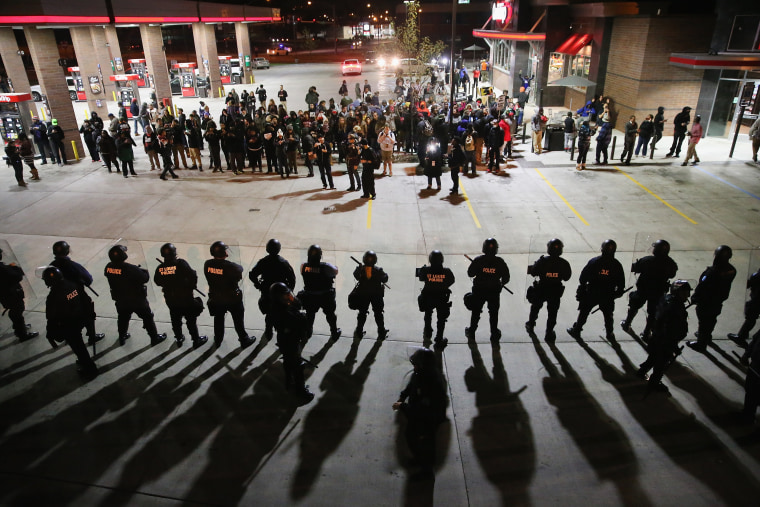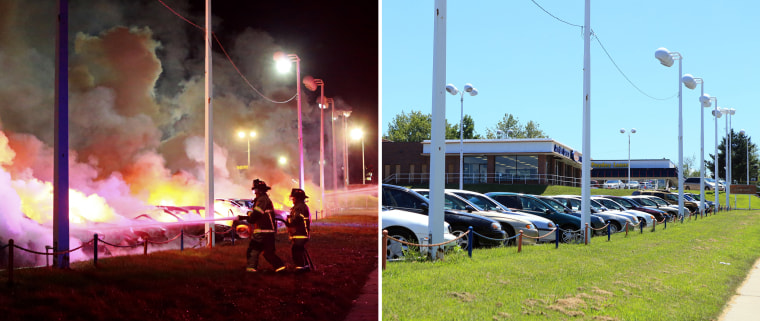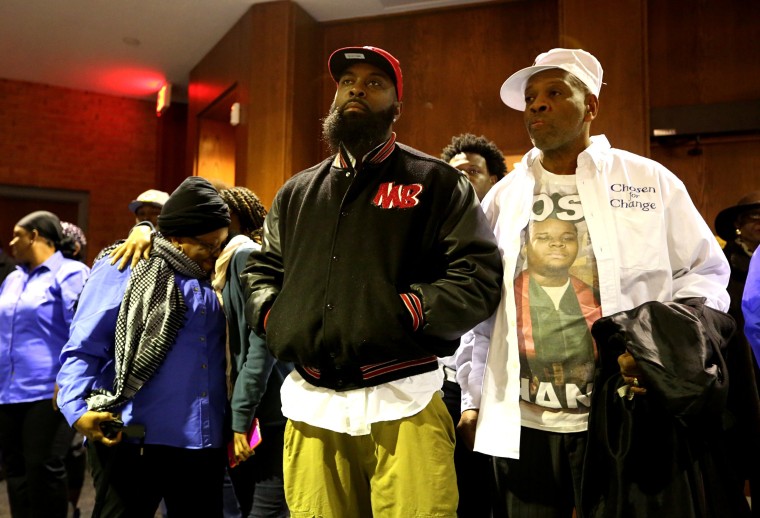In the wake of Michael Brown's death, the federal government wants to require the Ferguson Police Department to check all new hires against a database of officers who have been stripped of their law enforcement licenses for misconduct.
The mandate to consult the National Decertification Index received little notice in the government's proposed agreement to reform the police and court systems in the St. Louis suburb. But the measure's inclusion suggests to some observers that federal authorities could finally be seeking to put the index into wider use after years of resisting the idea.
The database contains the names of about 20,000 former officers who have been pushed out of law enforcement. The index has been used inconsistently, and many officers who are stripped of their badges in one jurisdiction are free to move to another.
Related: Justice Department Sues Ferguson, Missouri Over Police Reforms
Criminal justice advocates have long called for the creation of a clearinghouse of information on bad cops similar to the National Practitioner Data Bank, which tracks malpractice lawsuits and complaints against doctors. Those calls have been rejected by Congress and opposed by some law-enforcement groups, particularly police unions worried about creating a blacklist.
When Congress was debating a national police registry in 1996, one union official compared the idea to the "witch hunts of Salem." The bill failed.
"Law enforcement was late getting into the registry business," said Raymond Franklin, a retired director of Maryland's police standards agency and one of the creators of the index. "Every profession has it now. And quite frankly, nobody ever talks about the National Practitioner Data Bank for doctors being a blacklist. You would expect that there would be a source of information about how doctors could have problems."

If adopted, the requirement for Ferguson would be unusual. When police departments in Cleveland or Albuquerque, New Mexico, negotiated major agreements following shootings by officers, the Justice Department did not require them to begin using the index.
Related: Ferguson City Council 'May Reconsider' DOJ-Ordered Police Reforms
The Ferguson deal was put on hold last month after city officials rejected the cost of implementing the 127-page plan, and the Justice Department sued to enforce it. On Tuesday, the city council seemed to change course again, setting a March 15 vote to reconsider the deal.
The proposed settlement followed the government's highly critical assessment of Ferguson's law enforcement and legal systems after a white officer shot and killed Brown, an unarmed 18-year-old black resident, in August 2014. The Justice Department later cleared Darren Wilson, concluding that evidence backed his claim that he shot Brown in self-defense. His death helped spawn the national "Black Lives Matter" movement.
Related: Ferguson's Interim Police Chief Andre Anderson Suspended 3 Times in Past: Report
A yearlong Associated Press investigation last year found that the index was missing thousands of names because the voluntary, privately run effort does not include every state, and vast variations exist in how local and state officials track and handle police misconduct.
Forty-four states and the District of Columbia have a process for removing the licenses of police officers for misconduct, a process commonly known as decertification. The index aims to collect those records, but participation is limited to 39 states, including Missouri.

Even states that are relatively aggressive in identifying bad officers, such as Georgia, do not participate because their record-keeping differs too much from the national index, and the effort to convert the information would be time-consuming and costly, Georgia officials said.
What states do report to the index is also limited. Participating agencies enter only the names of decertified officers, their employers, dates of decertification and basic reasons for the punitive action. There is no detailed information on why an officer was been pushed out, nor is the index open to the public.
Federal money helped launch the index in 2000 after state police standards officials came together through their national group to create a bare-bones system for sharing decertification records. But the Justice Department does not fund it anymore.
The Justice Department did not respond to multiple requests for comment from the AP. The former head of its Office of Justice Programs said federal funding was meant to launch the index, not fund it long term.

"We thought it made sense at least from experimenting with it to see if it would catch on," said the official, Jim Burch, who now works for the Police Foundation.
Mike Becar, the executive director of the national police standards group, said his organization funds server space for the index at a minimal cost, but the index cannot expand without outside funding.
In a report last year, the President's Task Force on 21st Century Policing called on the Justice Department to partner with the national police standards group to expand the index to all states and territories. Including the index in the Ferguson agreement could be a sign that federal officials are acting on that plan.
"This is another venue or opportunity for pushing that," said Matthew Hickman, a Seattle University researcher who has long studied police decertification. It will send a message to Missouri and other states that the Justice Department "is paying attention to this issue and thinks that participation in the NDI is a good thing."
But getting Congress to pass a law making the index mandatory, Hickman added, would be a "serious uphill battle."